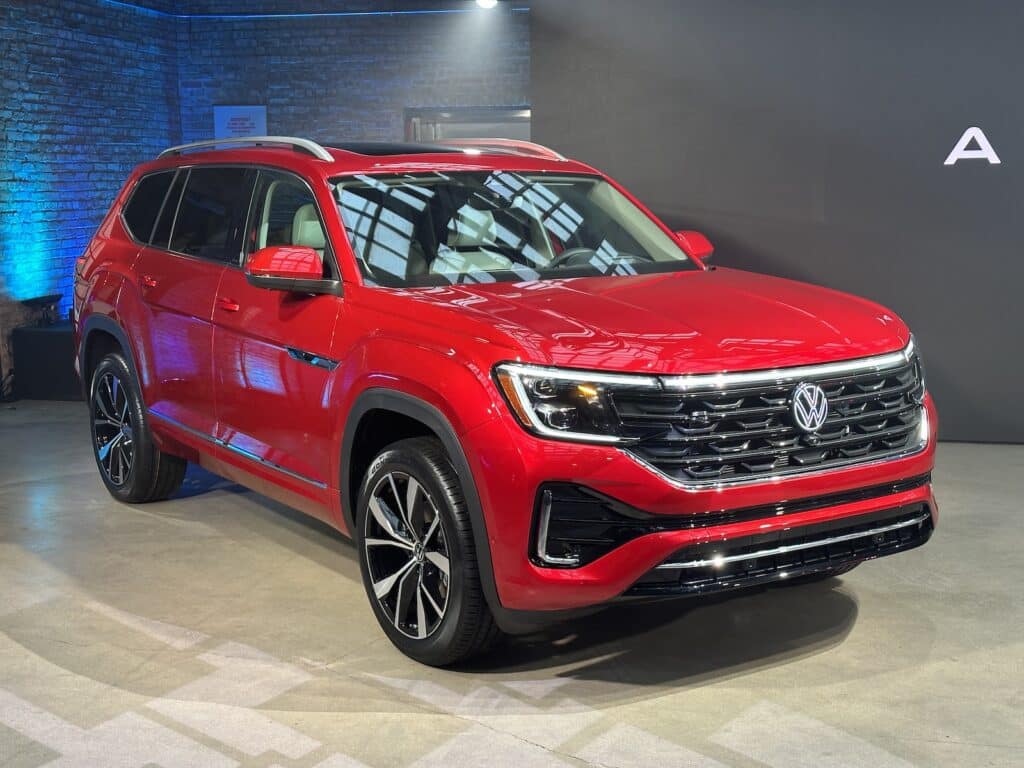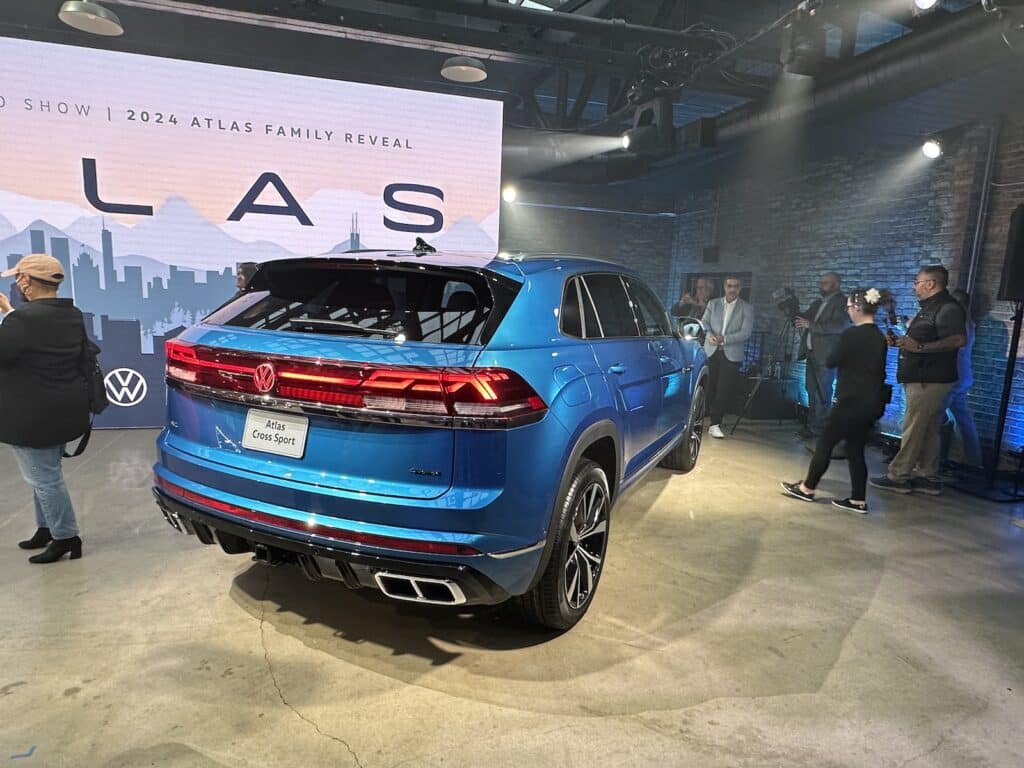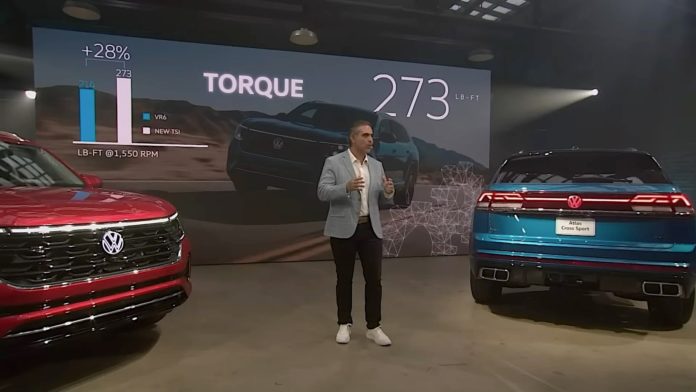Expect to see more sport-utility vehicles join Volkswagen’s line-up during the next few years, with the German automaker also planning to increase its EV portfolio, according to the brand’s North American CEO.
Long struggling to survive in the U.S. market, VW’s fortunes have taken a turn for the better since it started expanding its crossover line-up with the addition of the three-row Atlas model in 2016, the two-row Atlas Cross Sport following four years later.
Both of those models are getting a facelift — along with a new turbocharged engine and upgraded technology — for the 2024 model year. And Pablo Di Si, president and CEO, Volkswagen of America, expects the updated SUVs to boost demand by “addressing customer concerns” about the original models.
SUVs have made VW “viable” again
But VW isn’t stopping there. In an exclusive interview with TheDetroitBureau.com following the reveal of those 2024 models, Di Si offered some insights about what he wants to follow. And that includes more SUVs, as well as a growing line-up of EVs.
There’s certainly good reason to focus on sport-utility vehicles. During the unveiling of the Atlas and Atlas Sport at the Chicago Auto Show on Thursday, Di Si noted that as recently as 2013, sedans and other passenger cars made up 91% of Volkswagen’s U.S. sales. But, in a market where SUVs were rapidly gaining market share, that meant the automaker was losing sales and market share.

It began to shift direction with an updated Tiguan, but it took the arrival of the Atlas for Volkswagen to really begin gaining traction. It not only was an early entry in the booming market for three-row utes, but it went with a name Americans could relate to — rather than the Germanic Tiguan.
By 2022, the five SUVs in the VW line-up accounted for 83% of the brand’s U.S. sales. And Volkswagen captured a healthy 6% share of the midsize segment in the American market, “making us a viable company,” Di Si told journalists during his presentation.
CEO wants “special editions” and “lifestyle models”
Considering their success so far, the CEO later told TheDetroitBureau that “We need to add more SUVs in the U.S. I think we can improve market share and penetration.”
Di Si, who took over as the head of VW North America last summer, said he is now working up plans with corporate headquarters in Wolfsburg, Germany.
He described the products he wants as “special editions” and “lifestyle” models. Notably, Di Si stressed Volkswagen won’t follow the path taken by some key competitors, such as Honda, Ford, Toyota and Subaru. Those manufacturers have been launching special editions focused on off-roading.

“We’re not going to focus on niche” products such as the 2024 Honda Pilot TrailSport and the 2022 Subaru Forester Wilderness.
An “aggressive plan” for more EVs
Along with an expanded SUV line-up, Di Si is pushing to “accelerate EVs. We have a very aggressive plan” for the U.S. market.
The automaker already has a number of battery-electric vehicles in production around the world. But the compact ID.4 crossover is its only entry in the U.S. That will change in 2023 with the arrival of both the ID.7 — effectively a replacement for the Passat — and the long-wheelbase version of the ID.Buzz microbus.
Di Si declined to offer specifics but he’s clearly got support in high places.
“Over the tipping point”
“The U.S. has actually gone over the tipping point and what we see in in the forecasts and also (in) consumer preference is that electric mobility has really become mainstream,” Thomas Schäfer, CEO of Volkswagen Passenger Cars, told TheDetroitBureau.com during another exclusive interview last month at the Consumer Electronics Show.
“There’s no turning back and, you know, we have a great opportunity to make a more significant stance on the American market (with EVs), rather than with internal combustion engines,” VW’s global CEO said.
More North American EV production in the works
Schäfer also said he expects to see VW add more production capacity for battery-electric vehicles in North America. It currently produces a version of the ID.4 at its assembly plant in Chattanooga, the Tennessee plant upgraded to add a second, as yet-unidentified model in the next several years. The ID.Buzz, meanwhile, is being assembled in Mexico.
SUV and EV plans for the U.S. market may soon get locked into place, Schäfer suggested, noting VW will be holding a major global planning session this month.

